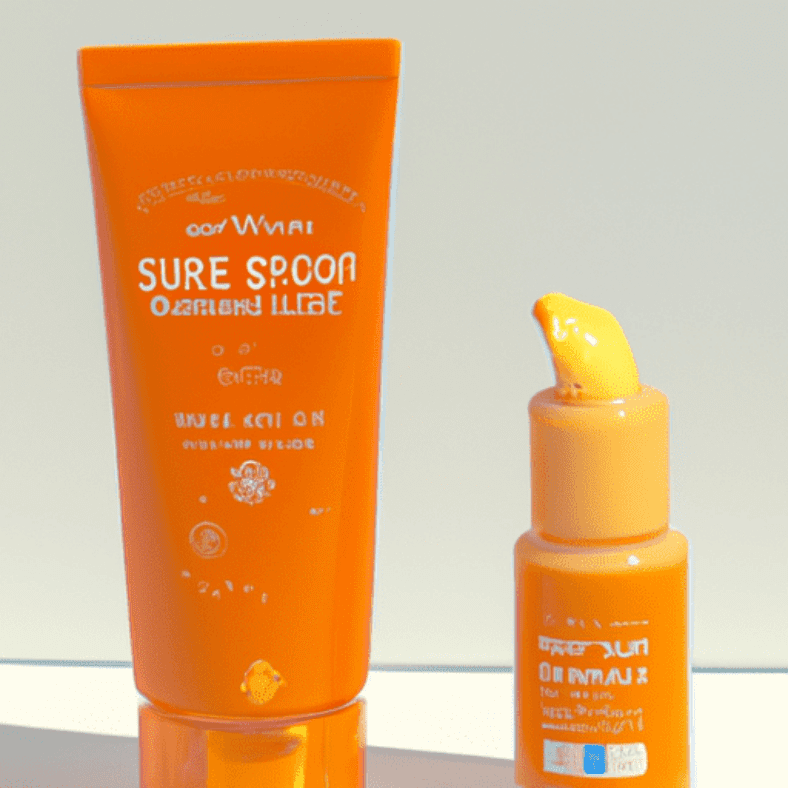-
Table of Contents
- How to Choose the Right Sunscreen: A Comprehensive Guide
- Key Takeaways
- Introduction: The Role of Sunscreen in Skincare
- The Importance of Broad-Spectrum Sunscreen
- Understanding SPF
- Considering Your Skin Type and Lifestyle
- Reading and Understanding Sunscreen Labels
- FAQ Section
- 1. Why is it important to use sunscreen?
- 2. What does broad-spectrum mean?
- 3. What SPF should I choose?
- 4. How often should I reapply sunscreen?
- 5. Can I use expired sunscreen?
- Conclusion: Making an Informed Choice
- Further Analysis
- Key Takeaways Revisited
How to Choose the Right Sunscreen: A Comprehensive Guide

[youtubomatic_search]
Key Takeaways
- Understanding the importance of sunscreen in a skincare routine is crucial for maintaining healthy skin.
- Choosing a broad-spectrum sunscreen is essential for comprehensive sun protection.
- The Sun Protection Factor (SPF) is a key factor to consider when selecting a sunscreen.
- Considering your skin type and lifestyle can help you choose the right sunscreen.
- Reading and understanding sunscreen labels can guide you in making an informed choice.
Introduction: The Role of Sunscreen in Skincare
As we increasingly understand the harmful effects of sun exposure, the importance of incorporating sunscreen into our daily skincare routine cannot be overstated. Sunscreen not only protects our skin from harmful ultraviolet (UV) rays but also helps maintain its health and youthfulness. This article aims to guide you on how to choose the right sunscreen for your skin type and lifestyle.
The Importance of Broad-Spectrum Sunscreen
When choosing a sunscreen, one of the most important factors to consider is whether it offers broad-spectrum protection. According to the American Academy of Dermatology (AAD), a broad-spectrum sunscreen protects the skin from both UVA and UVB rays, both of which can cause skin cancer and premature skin aging.
Understanding SPF
The Sun Protection Factor (SPF) is another crucial factor to consider. The SPF number indicates how well the sunscreen protects against UVB rays, which are primarily responsible for sunburn. The AAD recommends using a sunscreen with an SPF of 30 or higher, which blocks 97% of the sun’s UVB rays.
Considering Your Skin Type and Lifestyle
Your skin type and lifestyle also play a significant role in choosing the right sunscreen. For instance, if you have sensitive skin, you might want to opt for a physical (mineral) sunscreen, which contains active mineral ingredients, such as titanium dioxide or zinc oxide. On the other hand, if you lead an active lifestyle and spend a lot of time outdoors, a water-resistant and high-SPF sunscreen would be a better choice.
Reading and Understanding Sunscreen Labels
Finally, understanding sunscreen labels can help you make an informed choice. Look for key terms such as “broad-spectrum”, “SPF”, “water-resistant”, and “expiration date”. Also, be aware of misleading terms such as “sunblock” and “all-day protection”, which can give a false sense of security.
FAQ Section
1. Why is it important to use sunscreen?
Sunscreen protects your skin from harmful UV rays, which can cause skin cancer and premature skin aging.
2. What does broad-spectrum mean?
Broad-spectrum means that the sunscreen protects against both UVA and UVB rays.
3. What SPF should I choose?
The American Academy of Dermatology recommends using a sunscreen with an SPF of 30 or higher.
4. How often should I reapply sunscreen?
You should reapply sunscreen every two hours, or immediately after swimming or sweating.
5. Can I use expired sunscreen?
No, expired sunscreen may not provide the necessary protection.
Conclusion: Making an Informed Choice
Choosing the right sunscreen is a crucial step in maintaining healthy skin and protecting it from the harmful effects of sun exposure. By understanding the importance of broad-spectrum protection, considering the SPF, taking into account your skin type and lifestyle, and reading and understanding sunscreen labels, you can make an informed choice and ensure comprehensive sun protection.
[youtubomatic_search]
Further Analysis
As we have seen, choosing the right sunscreen involves more than just picking up the first bottle you see on the shelf. It requires a good understanding of what different terms mean and how they apply to your specific needs. By following the guidelines outlined in this article, you can ensure that you are making the best choice for your skin’s health and longevity.
Key Takeaways Revisited
- Sunscreen plays a crucial role in a skincare routine, offering protection against harmful UV rays and helping maintain healthy skin.
- Broad-spectrum sunscreens offer comprehensive sun protection, shielding the skin from both UVA and UVB rays.
- The SPF is a measure of how well a sunscreen protects against UVB rays. An SPF of 30 or higher is recommended.
- Your skin type and lifestyle should guide your choice of sunscreen. For instance, those with sensitive skin may prefer a physical sunscreen, while those who are active outdoors may need a water-resistant, high-SPF product.
- Understanding sunscreen labels can help you make an informed choice. Look for key terms and be wary of misleading ones.

Leave a Reply